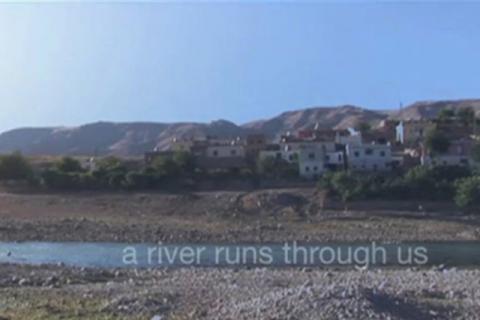Indonesia: Since April 2005, two companies involved in the building of a mega-dam in Indonesia, both owned by the a former Vice President of Indonesia, have been compulsory purchasing land from people around the Sulewana river in Poso, Central Sulawesi to make way for the construction and the displacement it will cause.
The project, known as, Poso II will affect the lives of up to 2,000 people. Residents of Peura Village are attacked by police officers as they try to prevent construction access.
Bulletin articles
The problems associated with large-scale hydropower dams are not a new issue to the Mekong basin. Originating in the Tibetan Himalayas, the Mekong River weaves through Yunnan province in southern China before passing through a small part of Burma, then into Laos, where for a long stretch it forms the Lao-Thai border in north and northeastern Thailand, and then flows south through Cambodia and down to the Mekong delta in Vietnam. Over the past decades, many parts of this river-rich region have been seriously impacted by large-scale hydropower dams.
Along the Congo River in the Democratic Republic of the Congo the Inga hydropower scheme has developed a series of hydroelectric dams, two of them already built – Inga I and Inga II- and two more under development – Inga III and Grand Inga (see WRM Bulletin 138, 77).
For many years now, WRM has stressed that it is unacceptable to certify large-scale industrial monoculture tree plantations. The main target has been the FSC, because it portrays itself to the world as the most reliable and respected label for wood products, and also because its members include numerous non-governmental organizations.
In 2007, FSC certifying body SGS began the certification process for Veracel Celulose in Bahia, Brazil, in accordance with the FSC’s principles and criteria. Veracel is a joint venture between the Swedish-Finnish transnational Stora Enso and Brazilian-based Fibria (formerly Aracruz). It controls some 100,000 hectares of monoculture eucalyptus plantations geared to the production of pulp for export, within a total area of over 200,000 hectares. It is currently working on doubling its pulp mill production capacity and plantations.
Companies that promote large-scale monoculture tree plantations do not seek the FSC label solely to increase the value of their final products. There are also companies that use the FSC for a very specific and very different purpose: obtaining certification to sell carbon credits. This is the case of Plantar, a company based in the state of Minas Gerais, Brazil.
Since 1974, industrial monoculture tree plantations have spread throughout Chile, and are particularly concentrated in the regions of Bío-Bío and Araucanía, although they are also found in the regions of Maule, Los Ríos and Los Lagos.
GeaSphere is an environmental pressure group working towards a more sustainable model of living based on lower impact agriculture practices that are environmentally sustainable, socially just and which ensures food security and promotes locally based economies and poverty alleviation in the southern African region. A major threat to the local integrated environment is the large scale industrial timber plantation industry, responsible for the transformation of millions of hectares of bio diverse grasslands, the primary vegetation type in most of Southern Africa’s timber growing regions.
In our first bulletin of the year, in light of the fact that 2011 has been declared the International Year of Forests, we shared with you the idea of defining the forest by its true meaning, as a diverse ecosystem that sustains countless forms and ways of life, rich in colours, textures, aromas and sounds.
The United Nations General Assembly has declared 2011 the International Year of Forests, and WRM has decided to devote its first bulletin of the year to this significant event. According to the resolution adopted by the General Assembly, the UN is committed to promoting “the management, conservation and sustainable development of all types of forests.”
The origin of forests
Some 430 million years ago, plants and arthropods began to live on land and to evolve, adapting to their new habitat while adapting their habitat at the same time. Larger and more varied types of plants – giant versions of what are classified by science today as lycopods, equisetums and ferns, reaching heights of up to 12 metres – spread across the swamps and lakeshores until forming the first terrestrial forests, which were occupied by the primitive ancestors of millipedes, centipedes, insects, mites and spiders.
Many years have passed since I had the great honour of being elected as the WRM International Coordinator. There are no words that could express my gratitude to those who gave me this opportunity. It has opened up horizons that I was barely aware existed, and allowed me to be, more than a coordinator of anything, a learner of everything.

